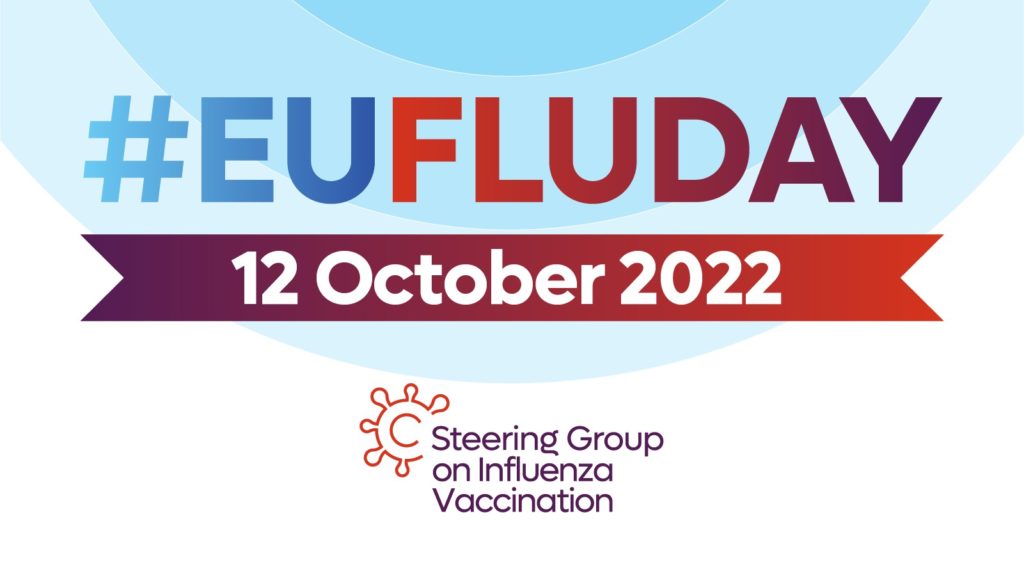Vaccines Europe - 27 Sep 2022
Webinar, 12 October 2022, 10.00am CET

Hosted by MEP Dolors Montserrat (EPP, Spain) and the Steering Group on Influenza Vaccination, the webinar Making influenza vaccination a priority across Europe brought together key stakeholders from across Europe to shine a light on the key challenges and opportunities of influenza vaccination. In this third annual EU Flu Day event, speakers focused on the importance of vaccinating at-risk groups, the threat of coinciding COVID-19 outbreaks and the role of efficient public communication. The panellists also shared best practices and stressed the importance of a coordinated approach between the EU and Member States.
MEP Dolors Montserrat (EPP, Spain), co-chair of the Steering Group, opened the webinar by stressing the importance of learning from the COVID-19 pandemic when it comes to effective EU collaboration as well as epidemiological disease surveillance and monitoring of vaccination coverage rates. These are crucial tools for policymakers to be able to assess the urgency of the situation in real-time and make informed decisions accordingly.
Presenting the patient perspective, Susanna Palkonen, Director of the European Federation of Allergy and Airways Diseases Patients’ Associations (EFA) and member of the Steering Group highlighted the serious risks of influenza infections for people with respiratory diseases, such as developing pneumonia for asthma patients or risk of acute exacerbation of COPD for COPD patients. Ms. Palkonen stressed that vaccination is not prevention for the vulnerable, it is care. In light of this, she called for annual flu vaccinations to be systematically included in healthcare plans. She further noted that lessons learned on communication during the COVID-19 crisis should be implemented when it comes to messaging on influenza.
In the following panel discussion, Ab Osterhaus, Chair of the European Scientific Working group on Influenza (ESWI) and member of the Steering Group, warned for surging influenza cases coinciding with possible outbreaks of COVID-19, which can lead to high mortality rates. Considering this, he urged Europeans to get their COVID-19 and flu vaccinations at the same time.
To increase vaccine uptake there is a need for strong systems to deliver vaccines as well as strong communication, explained Richard Pebody, Team lead, High Threat Pathogens, Infectious Hazard Management, WHO Regional Office for Europe. Additionally, he discussed the importance of vaccinating both pregnant women, for which an influenza infection can be severe and harm the unborn child, and young children under the age of five who have an increased risk of hospitalisation.
Stefan Schreck, Adviser for Stakeholder relations at DG SANTE, European Commission explained the Commission’s efforts to increase uptake of flu vaccination, for example by facilitating the European Vaccination Information Portal and running the Coalition for Vaccination. He further presented the Commission’s new statement on influenza and COVID-19 in collaboration with WHO Europe and the ECDC, urging countries to prioritise protecting the most vulnerable groups by co-administering influenza and COVID-19 vaccines whenever feasible.
In the aftermath of the joint vaccines purchasing in the COVID-19 pandemic, the possibility of joint procurement for influenza vaccines was debated. It was discussed that the EU’s purchasing of COVID-19 vaccines differed from possible joint procurement of flu vaccines, since the coordinated approach was taken as a response to the new pandemic for which COVID-19 vaccines were still under development. Laurent Louette, Director Public Affairs & Country Liaison, Vaccines Europe and member of the Steering Group argued that routine vaccination programmes (including influenza) are in principle a matter of national competence and it would be particularly complex to address country particularities through joint procurement, and would not provide a silver-bullet solution to access in Europe.
The importance of strong information campaigns, especially in Eastern Europe where vaccination uptake is lagging, was stressed by Adam Antczak, Vice Chancellor for Clinical Affairs and Scientific Management at the Medical University of Lodz. He further shared valuable best practices from Poland, such as enabling vaccination by pharmacists or at the workplace.


 Members area
Members area

